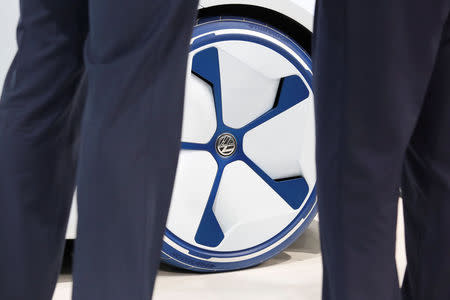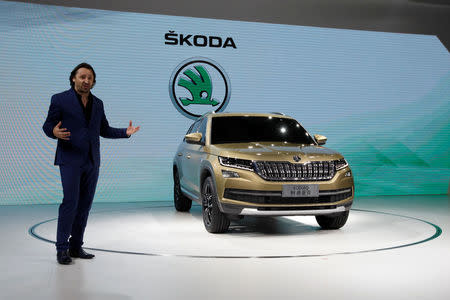Automakers in China on tenterhooks over fate of key tax break
By Jake Spring GUANGZHOU, China (Reuters) - Car makers in China are fretting over whether a tax break that has propped up sales this year will be extended, with an end to the policy possibly leading to the first annual decline in sales on record for the world's largest auto market. The topic is likely to dominate talk at the Guangzhou auto show which starts on Friday, even as industry executives work hard to promote new SUVs and electric cars, currently the highest growth segments in China. "The tax cut has been very successful, it's been a fabulous success," said James Chao, Asia-Pacific chief for research firm IHS Markit Automotive. "But there's going to be some pay back next year - a lot of payback." Spooked by a slowing economy, the central government last October halved the sales tax for cars with engines of 1.6 litres or smaller to 5 percent. That turned around a market on the verge of sales declines in 2015 to one that has notched up 13.8 percent growth for the year to date. Without an extension, analysts forecast annual sales would at best be flat or could decline 2 to 3 percent, which would be the first drop since China's car industry association began collating data in 1997. Concern that the tax cut will expire at the end of December as scheduled has prompted Volkswagen AG and other auto executives to warn of a potential drop-off in sales, adding that they have been in talks with the government on the matter. "There is a question of what will happen with this purchase tax policy. If it really comes totally to an end, then maybe the first quarter will be a little bit more difficult," said Jochem Heizmann, China CEO at Volkswagen, which counts China as its biggest market. Heizmann said he predicts low growth for China's auto market even if the tax cut expires. He added that robust growth was possible if the cut is extended or even if it was replaced by a smaller cut. The government has said it is considering an extension, but pundits are reluctant to make a bet on whether one will be forthcoming, noting that pushing back the expiry date would only delay a drop-off in sales. A rapid climb in real estate prices has also lessened the need for Beijing to stimulate the auto sector to prop up the economy, analysts say. A flat or mildly declining market could be a rude shock for automakers used to double-digit growth in China and may push them to consider heavy discounts, squeezing profit margins, said Jochen Siebert, managing director of JSC Automotive. It could also bring in to question the wisdom of aggressive production plans that both foreign and Chinese automakers have adopted. Volkswagen, for examples has said it wants annual production capacity of 5 million vehicles by 2019, a 40 percent increase over last year's sales. (Reporting by Jake Spring; Editing by Edwina Gibbs)







